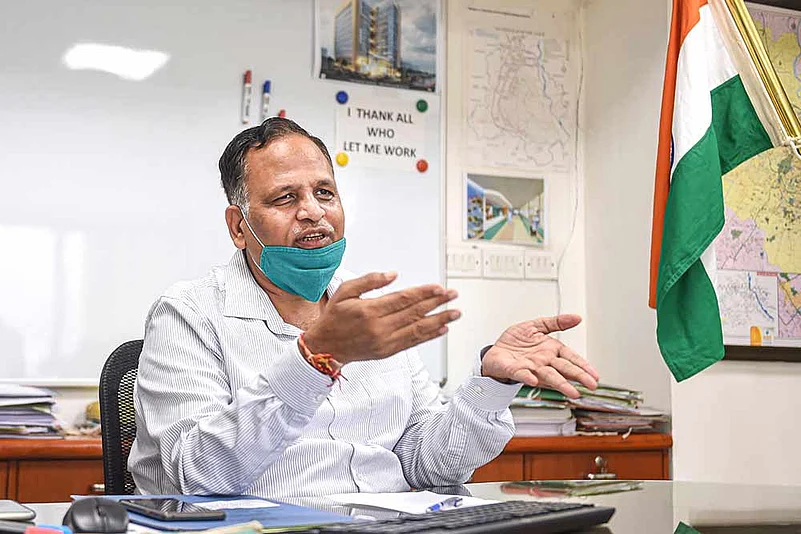On Wednesday, Delhi Water Minister Satyendar Jain directed officials to use modern technology and upgrade all sewage treatment plants (STPs) and biogas plants in the city within 12 to 15 months.
Satyendar Jain Tells Officials To Upgrade STPs And Biogas Plants In Delhi In 12 To 15 Months
Jain instructed the officials to upgrade all STPs and sludge biogas plants using state-of-the-art technology instead of the conventional one, which he claimed takes four to five years.

In a meeting focused on upgrading all such plants of the Delhi Jal Board (DJB), it was decided that 'STP-treated water' would be supplied to farmhouses in areas such as Satbari, Sultanpur and Jaunpur where groundwater is extracted for horticultural needs.
About the tariff model, the DJB has decided to charge Rs 5,000 per acre each month from the consumer apart from a one-time infrastructure cost of Rs 10,000 per acre, a statement said. "It is expected that more than 15 million gallons per day of water would be supplied to farmhouses so that tubewells could be closed and precious groundwater could be saved," it added.
Jain instructed the officials to upgrade all STPs and sludge biogas plants using state-of-the-art technology instead of the conventional one, which he claimed takes four to five years. In the new method of upgradation, existing plants will be revived according to the latest standards without additional civil work, without tree cutting and with minimal effect to the neighbourhood.
"Incentives will be provided for the usage of energy-efficient equipment in these STPs. The DJB should try to achieve completion of all these works at least six months before actual deadlines set for 'Clean Yamuna'," said a statement quoting Jain, who is also the chairman of DJB.
He also directed the officials to upgrade all the 20 biogas plants and make them fully functional within one year so that they could handle sludge from STPs, septage from septic tanks, cow dung from dairies and municipal solid waste.? Biogas plant converts organic material into methane gas, which can be further converted to CNG or electricity.
"Though it is the responsibility of the municipal corporations to handle these waste types, the DJB will lead this initiative to clean waste to reduce the burden on existing landfill sites," Jain said.
"Additional gas and power generated from the biogas plants will be supplied to electric vehicle stations and CNG stations to promote clean transport fuel. This will also reduce the burden on the existing network for the supply of electricity and gas," he added.
-With PTI Inputs

























